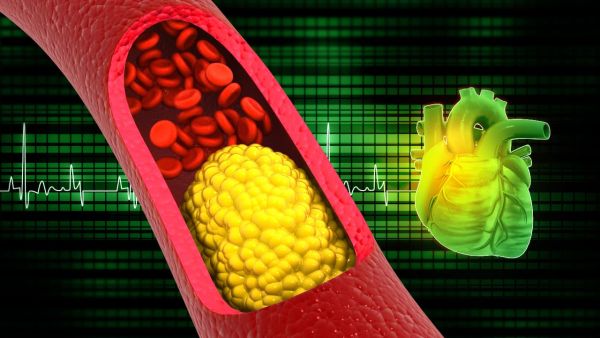
High cholesterol is one of the greatest risks to heart health. When excessive cholesterol accumulates in the blood, a condition known as hypercholesterolaemia, it can block arteries and raise the risk of heart disease. Now, a team of researchers from the University of Barcelona and the University of Oregon has developed a promising new treatment that can lower cholesterol levels by almost 50%, without using statins or causing their usual side effects.
This study introduces a new method to prevent atherosclerosis, a condition in which fatty materials build up on artery walls and hinder blood flow. The results of the research were published in the journal Biochemical Pharmacology.
The scientists looked at a protein called PCSK9, which is important in managing levels of low-density lipoprotein cholesterol (LDL-C), commonly referred to as “bad cholesterol.” High levels of LDL-C are associated with a higher risk of heart disease and stroke.
Typically, PCSK9 links to receptors on the surface of liver cells that help remove LDL cholesterol from the blood. When PCSK9 binds to these receptors, it stops them from working effectively. This causes more LDL cholesterol to remain in the bloodstream.
To tackle this, the researchers designed a way to stop PCSK9 using special molecules known as polypurine hairpins (PPRHs). These molecules can “switch off” specific genes, in this case, the gene that makes PCSK9. By reducing the activity of this gene, more LDL receptors stay active, enabling the body to clear cholesterol more efficiently.
PPRHs are small, single-stranded DNA molecules that can connect to particular parts of DNA or RNA inside cells. This ability allows them to block the production of certain proteins. In this research, two specific PPRHs, named HpE9 and HpE12, were found to greatly reduce PCSK9 levels.
Professor Carles J. Ciudad from the University of Barcelona explained that these PPRHs attach to specific areas of the PCSK9 gene, preventing it from making the protein.
To evaluate their method, the researchers tested it on cells and on mice that were genetically modified to express human PCSK9. The results were encouraging. In liver cells, HpE12 reduced PCSK9 RNA levels by 74% and protein levels by 87%. In mice, a single dose of HpE12 decreased PCSK9 levels by 50% and lowered total cholesterol by 47% within just three days.
For years, statins have been the most widely used drugs for lowering cholesterol. Although they are effective, they can sometimes lead to muscle pain and other side effects. Because of this, scientists have been looking for other options, and PCSK9 has become a major target.
Several treatments already target PCSK9, including Inclisiran, a small interfering RNA therapy, and antibody drugs like evolocumab and alirocumab. However, the new PPRH-based treatment may offer more advantages.
According to the research team, PPRHs are easier to make, stable, and do not cause immune responses. Most importantly, they work well without the muscle-related side effects that can come with statins.
This discovery represents a significant move toward safer and more effective cholesterol control. Although the results so far come from lab and animal studies, the findings suggest that PPRH-based treatments could one day be a strong alternative for people who can't take statins or need extra help in lowering their cholesterol.
If human trials are successful in the future, this approach could change how we prevent heart disease, by keeping arteries clear and hearts healthy, without the need for statins.